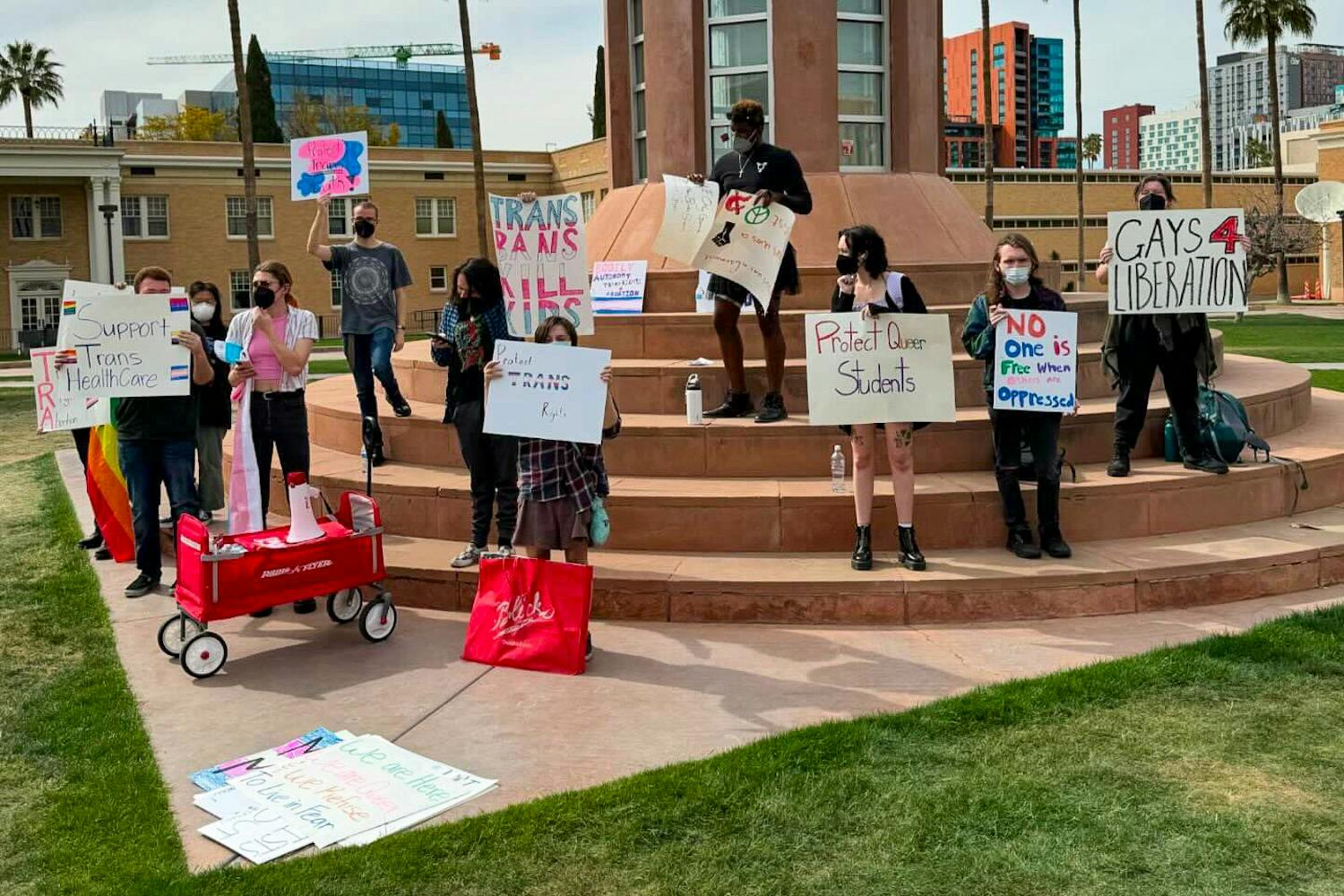 A pipe and a sample medical marijuana container, which are controversial objects in Arizona’s debate over the legality of marijuana. (Nikki Bradford/The State Press)
A pipe and a sample medical marijuana container, which are controversial objects in Arizona’s debate over the legality of marijuana. (Nikki Bradford/The State Press)With an estimated $1 billion statewide budget shortfall, a state lawmaker has proposed legalizing recreational marijuana to garner revenue.
Rep. Mark Cardenas, D-Phoenix, contends that House Bill 2007 will be one of the most efficient ways to close that gap without cutting back on other necessary programs.
“Ten percent will go to treatment programs to treat drug abuse, 10 percent will go to education and public safety, 30 percent will go toward K-12 education and the remaining 50 percent will to go the general fund,” Cardenas said. “Due to the rather large deficit, the majority should go to the general fund to look at later.”
Arizona is one of 23 states to have legalized medicinal marijuana. Oregon, Washington, Colorado and Alaska have legalized recreational marijuana.
The bill would allow those 21 and older to grow up to five marijuana plants on their property. Citizens who choose to purchase marijuana through a local dispensary would pay a tax of $50 per ounce.
The bill would still outlaw smoking marijuana in a public place and driving under the influence of marijuana. Cardenas said the most important aspect of the potential law is citizen safety.
“The biggest components for this bill would be to tightly regulate and guarantee the quality of the product,” Cardenas said. “We have to make it as safe as possible.”
Stefan Shepherd, a member with the Joint Legislative Budget Committee, said the JLBC conducted an analysis of potential revenues resulting from the legalization of marijuana.
By the fiscal year of 2016, the bill could generate up to $48 million in revenue after a two-year program implementation, Shepard said.
Cardenas's solution to help close the budget gap is radically different to Gov. Doug Ducey's, who stated that he would not raise taxes but instead proposeda cut of $75 million to university funding.
Because of Arizona’s proximity to Mexico, Cardenas said current marijuana policies fund illegal activities.
“The problem with the current marijuana policy is the revenue funds drug cartels and violence at the border,” Cardenas said.
Cardenas acknowledged the bill does have a possibility of passing the Legislature, though that possibility is very slim. It's more likely to become a ballot initiative for citizens to vote on in 2016. A similar initiative failed to earn enough signatures to make the 2014 ballot, but marijuana advocates are pushing for 2016.
Mason Tvert, a representative for Marijuana Policy Project, said while the MPP did not push for the legislation of this bill specifically, the organization has encouraged supporters to take action after they were largely responsible for the legalization of medicinal marijuana in Arizona.
The project aims to replace current marijuana policies with a system similar to alcohol laws.
“Our goal is to end marijuana prohibition and replace it with a system where pot is taxed like alcohol,” Tvert said. "Marijuana prohibition is as useless as alcohol prohibition."
Reach the reporter at Jlsuerth@asu.edu or follow @SuerthJessica on Twitter.
Like The State Press on Facebook and follow @statepress on Twitter.




